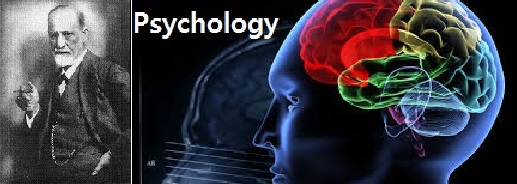
Erectile Dysfunction
Treatment for men unable to have an erection took a great leap forward when the first oral erectile dysfunction medication, Viagra, sildenafil, was introduced in 1998. But there have been strides recently in a host of other erectile dysfunction treatments, ranging from over-the-counter pumps to surgical implants and suppositories.
Diagnosing your own erectile dysfunction is not a good idea, however. If you have troublegetting an erection, it's important to see a doctor before pursuing any sort of treatment. There could be amedical explanationfor your condition, and your health and sexual history may come into play.
Erectile dysfunctionorimpotenceissexual dysfunctioncharacterized by the inability to develop or maintain anerectionof thepenisduringsexual activity.A penile erection is thehydrauliceffect of blood entering and being retained in sponge-like bodies within the penis. The process is most often initiated as a result ofsexual arousal, when signals are transmitted from thebraintonervesin the penis. The most important organic causes arecardiovascular diseaseanddiabetes, neurological problems (for example, trauma fromprostatectomysurgery),hormonalinsufficiencies (hypogonadism) anddrug side effects.
Psychologicalimpotence is where erection or penetration fails due to thoughts or feelings (psychological reasons) rather than physical impossibility; this is somewhat less frequent but can often be helped. Notably in psychological impotence, there is a strongresponse to placebo treatment. Erectile dysfunction can have severe psychological consequences as it can be tied to relationship difficulties and masculine self-image generally.
Besides treating the underlying causes such as potassium deficiency or arsenic contamination of drinking water, the first line treatment of erectile dysfunction consists of a trial of PDE5 inhibitordrugs (the first of which wassildenafilor Viagra). In some cases, treatment can involveprostaglandintablets in theurethra, injections into the penis, apenile prosthesis, apenis pumporvascular reconstructive surgery.
The Latin termimpotentia coeundidescribes simple inability to insert the penis into thevagina; it is now mostly replaced by more precise terms, such aserectile dysfunction. The study of erectile dysfunction within medicine is covered byandrology, a sub-field withinurology. Researchthat erectile dysfunction is common, and it is suggested that approximately 40% of males suffer from erectile dysfunction or impotence, at least occasionally.
Erectile dysfunction represents a substantial burden upon public health. Studies have estimated that approximately 50% of the male population aged between 40 and 70 years will suffer from Erectile dysfunction at some stage, with 10% of these affected severely. On average, a general practitioner is estimated to see between one and five new cases of Erectile dysfunction per month, and the impact upon the psychosocial health of the sufferer and his relationships may be considerable. Erectile dysfunction is defined as the persistent inability to achieve or maintain penile erections of sufficient value to engage in satisfactory sexual activity. Impotence tends not to be used as a descriptive terminology currently as it is felt to imply failure.
Many physical causes of Erectile dysfunction exist, with only 10–20% of sufferers believed to have a solely psychological cause. There are many organic causes for Erectile dysfunction, with the majority of these based upon vascular insufficiency.
Erectile dysfunction, sometimes called impotence, is the inability to get or keep an erection firm enough for sexual intercourse. The condition has become highly visible in recent years, but that doesn’t make it any more welcome for the 5 to 15 percent of men whose sex lives are affected.
The disorder can occur at any age, but is more common in men over age 75. In middle aged men, Erectile dysfunction can signal risk of a heart attack.
The same cholesterol plaques that can build up in the arteries surrounding the heart can also affect arteries that go through penile tissue. Once doctors rule psychological causes, "they need to do a cardiac workup to make sure that this guy is not on the verge of getting a heart attack.
Understanding all about Erectile Disorder
To understand what causes erectile dysfunction, it is important to first review how an erection occurs. For a man to have an erection, a complex process takes place within the body.
An erection involves the central nervous system, the peripheral nervous system, psychological and stress-related factors, local factors with the erection bodies or the penis itself, as well as hormonal and vascular (blood flow or circulation) components. The penile portion of the process leading to an erection represents only a single component of a very complicated and complex process.
Erections occur in response to touch, smell, and auditory and visual stimuli that trigger pathways in the brain. Information travels from the brain to the nerve centers at the base of the spine, where primary nerve fibers connect to the penis and regulate blood flow during erections and afterward.
Sexual stimulation causes the release of chemicals from the nerve endings in the penis that trigger a series of events that ultimately cause muscle relaxation in the erection bodies of the penis. The smooth muscle in the erection bodies controls the flow of blood into the penis. When the smooth muscle relaxes, the blood flow dramatically increases, and the erection bodies become full and rigid, resulting in an erection. Venous drainage channels are compressed and close off as the erection bodies enlarge.
Detumescence (the process by which the penis becomes flaccid) results when muscle-relaxing chemicals are no longer released.
If one or more of the above physical and/or psychological processes is disrupted, erectile dysfunction can result. Erectile dysfunction describes a man's inability to achieve and maintain an erection of his penis sufficient for mutually satisfactory intercourse with his partner.
In general, the cause of erectile dysfunction is divided into 2 types. Many men will have both:
Psychological Causes
Erection problems usually produce a significant psychological and emotional reaction in most men. This is often described as a pattern ofanxietyand stress that can further interfere with normal sexual function. This "performance anxiety" needs to be recognized and addressed by your doctor.
For some men, erectile dysfunction develops with age or may be related to depression or another psychological cause, such as widower syndrome.
Certain feelings can interfere with normal sexual function, including feeling nervous about or self-conscious about sex; feeling stressed either at home or at work; or feeling troubled in your current relationship. In these cases, psychological counseling with you and your sexual partner may be successful. One episode of failure, regardless of cause, may propagate further psychological distress leading to further erectile.
Physical (Organic) Causes
Physical causes for erectile dysfunction are much more common than psychological causes. In determining a physical (or organic) cause, your doctor will first rule out certain conditions, such ashigh blood pressure,high cholesterol, heart and vascular disease, low male hormone level,prostate cancer, and diabetes, which are associated with erectile dysfunction. In addition to these conditions, certain systemic and respiratory diseases are known to result in erectile dysfunction:
Scleroderma (stiffening or hardening of the skin)
Kidney failure
Livercirrhosis
Hemachromatosis (too much iron in the blood)
Chronic obstructive pulmonary disease.
Often, one can restore sexual health by treating a condition such as high blood pressure with diet and/orexerciseor by controlling diabetes or other chronic diseases. Nutritional states, including malnutrition and zinc deficiency, may be associated with erectile dysfunction and can also be treated with diet.
Almost any disease can affect erectile function by altering the nervous, vascular, or hormonal systems. Various diseases may produce changes in the smooth muscle tissue of the penis or influence mood and behavior.
Diseases that affect the nervous system and are commonly associated with erectile dysfunction include:
Epilepsy
Stroke
Multiple sclerosis
Guillain-Barré syndrome
Alzheimer disease
Parkinson disease
Vascular diseases account for nearly half of all cases of erectile dysfunction in men older than 50 years.
Vascular disease includesatherosclerosis(fatty deposits on the walls of the arteries, also called hardening of the arteries), a history of heart attacks,peripheral vascular disease(problems with blood circulation), and high blood pressure.
Prolonged tobacco use (smoking) is considered an important risk factor for erectile dysfunction because it is associated with poor circulation and its impact on cavernosal function.
Blood diseases, such as sickle cellanemiaand leukemias, are also associated with erectile dysfunction.
An imbalance in your hormones, such as testosterone, prolactin, orthyroid, can cause erectile dysfunction. The following hormonal (or endocrine) conditions are commonly associated with erectile dysfunction:
Hyperthyroidism(overactive thyroid gland)
Hypothyroidism(underactive thyroid gland)
Hypogonadism (leads to lower testosterone levels)
Medications
Medications used to treat other medical disorders may cause erectile dysfunction. If you think erectile dysfunction is caused by a medication, talk with your doctor about drugs that might not cause this side effect. Do not just stop taking a prescribed medication before talking with your doctor. Common medications associated with erectile dysfunction are:
Antidepressants(for depression)
Antipsychotics (for psychological illness)
Antihypertensives (for high blood pressure)
Antiulcer drugs, such ascimetidine(Tagamet)
Medications to treat prostate cancer, such asgoserelin(Zoladex) andleuprolide(Lupron), and medications to treat benign enlargement of the prostate, such asfinasteride(Proscar) anddutasteride(Avodart)
Drugs that lower cholesterol (More studies are needed to determine if erectile dysfunction is actually due to the high cholesterol in the blood vessels or the drugs to lower the high cholesterol.)
Alcohol abuse
Mind-altering agents, such as marijuana and cocaine
Surgical Causes
Surgery in the pelvic area may injure the nerves and the arteries near the penis, resulting in erectile dysfunction. Also, surgical procedures on the brain and the spinal cord may cause erectile dysfunction. Those procedures often associated with erectile dysfunction include:
Aortoiliac or aortofemoral bypass
Abdominal perineal resection
Proctocolectomy
Radical prostatectomy
Radiation therapy for prostate cancer as well as for other cancers, such asbladder cancer,colon cancer, orrectal cancer
Brachytherapy (seed implants) for prostate cancer
Cryosurgery of the prostate
Cystectomy (removal of the urinary bladder)
Traumatic Causes
Trauma or injury to the penis and/or the pelvic blood vessels and nerves is another potential factor in the development of erectile dysfunction.
Peyronie's disease is a condition associated with erectile dysfunction. With this disease, scar tissue forms inside the penis, and the penis is usually bent or curved during an erection. Injuries to the penis may also result in scar tissue formation as well as penis curvature during an erection.
Bicycle riding for long periods has also been implicated as a cause of erectile dysfunction. Some of the newer bicycle seats have been designed to soften pressure on the perineum (the soft area between the anus and the scrotum).
Next Steps
Currently, virtually any man who wishes to have an erection can obtain it, regardless of the underlying cause of his problem. Many reasonable treatment options exist. Your first step is to find a well-trained, experienced, and compassionate doctor who is willing to take the time to understand you as well as to fully examine you to discover the cause of erectile dysfunction. Together, you and your doctor can then discuss possible treatments.




































